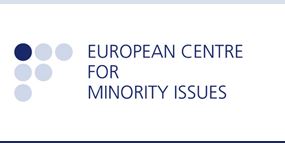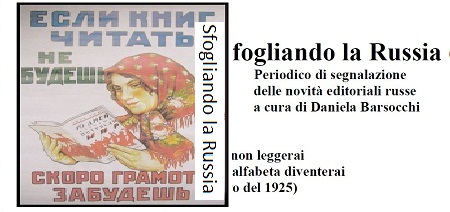CFP: YOUNG RESEARCHERS CONFERENCE: WRITING THE PAST/RIGHTING MEMORY
Submissions of abstract due by October 1, 2014
Havighurst Center for Russian and Post-Soviet Studies
Miami University, Oxford, Ohio
This conference will focus on the region of Russia, Eastern Europe and/or Eurasia and will include discussion on memory and history, remembering and forgetting, commemoration, institutionalization and marketing of memory in the context of various social and political processes such as migration and lustration, and comprise genres from memoirs to laws to investigative journalism to textbooks, film, and novels. The conference will feature two keynote speakers, Grigorii Chkhartishvili and Alexander Etkind, and will be organized by panels suggested and put together by the Havighurst Center Faculty. When submitting an abstract please specify which panel you would like to be a part of and then submit your resume and abstract to the appropriate e-mail address indicated below.
Proposals are requested from young scholars who have already completed their dissertation research (ABD) or have defended their dissertation within the last three years. This will be an intensive 3-day working conference (May 31-June 3, 2015), during which each of the selected papers will be critiqued by the other participants, including all invited presenters, keynote speakers, and a team of discussants made up of Miami University faculty. Papers will be circulated in advance, and participants are expected to be prepared to discuss other participants’ papers. The language of the conference will be English.
The conference will be held in Cuma (ancient Cumae), Italy, which is located on the Bay of Naples, one hour drive from Naples, and hour and a half from Capri. The train ride from Rome’s Termini train station is about 1-1/2 hours. The Havighurst Center will provide all meals and 3 nights (shared room) at the Villa Vergiliana in Cuma. Participants will be responsible for all travel to and from the Villa.
To be considered for the conference, submit an abstract to the appropriate panel organizer by October 1, 2014. Please type “2015 Young Researchers Conference” as the subject of the email. Selected papers will be announced by December 1, 2014. If selected, participants must submit completed papers for circulation to other conference participants by April 15, 2015.
Proposed Panels
New Histories for New Times. The collapse of communist systems in Central and Eastern Europe has led to the production of new historical narratives for the new nation-states of the region. In Russia, the histories that have emerged have ranged from the tendentious (the controversial textbook by A. V. Filippov that described Stalin as an efficient manager who had to resort to extreme measures to preserve the state) to the more genuine (Boris Akunin’s History of the Russian State, which aimed to be more “impartial and objective” in its approaches). How have writers, scholars, and professional historians captured the past in their works since 1991? How have new histories attempted to narrate the more recent, and more controversial, pasts? What forms have these histories taken (textbooks, web sites, graphic novels, etc.)? These are some of the questions this panel will tackle. When applying for this panel, please submit your resume and abstract (no more than 300 words) to Stephen Norris at: norriss1@miamioh.edu.
The Condition We Call Exile. The title of this panel, borrowed from Joseph Brodsky’s essay, will focus on the writings of Russian emigration in the 20th century. Vladimir Nabokov famously wrote: “Isn’t it necessary once and for all to refuse any longing for the fatherland, any fatherland, except that one, which is with me, in me, which clings like the silver of sea sand to the skin of the soles, lives in the eyes, in the blood, providing depth and horizon to the background of every hope?” The panel will address narratives of exile and nostalgia, both in prose and poetry. Papers will address but not be limited to the following questions: how does the narrative of exile change from one wave of Russian emigration to the next? Is the conventional perception of nostalgia applicable to the Russian treatment of exile? How do the changes in political landscape affect exilic narratives?When applying for this panel, please submit your resume and abstract (no more than 300 words) to Zara M. Torlone at: torlonzm@miamioh.edu.
Victims and Aggressors: Russia and its Neighbors in Contemporary Literature.
Since 1991 literature has responded to and exacerbated the vexed relationship between post-Soviet identity and the messianic role Russian culture ascribes to the written word. Edith Clowes argues that writing reflects and intensifies debates over the fate of the world’s largest country, a fate manifest in geographical terms (loss of certain territories, annexation of others) and how these appear in writing. This panel invites papers related to Russian literature (prose, poetry, drama, memoirs, online writing, etc.) after the Soviet Union, as well as papers dealing with literatures of the former USSR. Papers focusing on how Eastern European literature envisions Russia are also welcome. When applying for this panel, please submit your resume and abstract (no more than 300 words) to Ben Sutcliffe at: sutclibm@miamioh.edu.
Remembering Communism. In the 1990s and 2000s a new generation of authors with a particular background began to emerge: those who were born during the later stages of communism but began to write only after its collapse. This panel takes a closer look at the works of these writers. Around what topics, experiences and protagonists do such works revolve? How are the authors’ explorations of issues related to childhood and adolescence related to the effort understand how “the old system” worked? In what ways are experiences of power and reflections on the tangled relationship between politics and art feature in the mnemonic narratives they offer? When applying for this panel, please submit your resume and abstract(no more than 300 words) to Venelin Ganev at: ganevvi@miamioh.edu.
Affective Histories. This panel invites papers, which focus on interconnections between emotions, memory, or history. Various studies have shown that emotions are not substances to be discovered in our blood, they are not simply properties of persons, but social practices organized by stories we both enact and tell (Rosaldo 1984). Emotions are cognitive constructions, interpretations, embodied thoughts, thoughts seeped with the apprehension that ‘I am involved’ (Rosaldo 1984:143). What kind of emotions inhabit people’s memories? How do these memories express political belonging and citizenship? How do they project moral imperatives, desires, and visions of the future? How memories are embedded in material lives and experience? How do memories become a source for historical narratives or a form of resistance? What is the place of suffering in memory and history? This panel will explore themes which include remembering and commemoration; personal litanies and memory, suffering and nostalgia; and affective management of history by the state among others. When applying for this panel, please submit your resume and abstract (no more than 300 words) to Neringa Klumbytė at: klumbyn@miamioh.edu.
Holy Russia’s Unpredictable Past. In the past century, the Russian Orthodox Church went from being the dominant religious institution of the Russian Empire, to an chaotic attempt at a “free church in a free state” after the February Revolution, to being the subject of intense persecution for more than two decades after the Bolshevik Revolution, to being subject to strict state control in the late Soviet period. Since the collapse of the Soviet Union, there was perhaps again an attempt to create a “free church in a free state” during the Yeltsin years to once again something like the dominant religious institution in Putin’s Russia. How is the twentieth century remembered by the Russian Orthodox Church today? The Church has promoted the memory of those persecuted by the Soviets through its canonization of new martyrs and establishment of memorial sites to victims of the terror. Yet as official discourse under Putin about the Soviet period becomes more sanitized and positive, and the Church has grown increasingly close to the state, has the Church’s discourse about Soviet persecutions changed? Are there other ways in which the Church’s views of the Imperial, “democratic,” or Soviet past shifted in the past two decades? What are the differences in the discourse between the higher levels of the Moscow Patriarchate and those of other levels of the Church, be they scholarly or popular? When applying for this panel, please submit your resume and abstract (no more than 300 words) to Scott Kenworthy at: kenwors@miamioh.edu.













